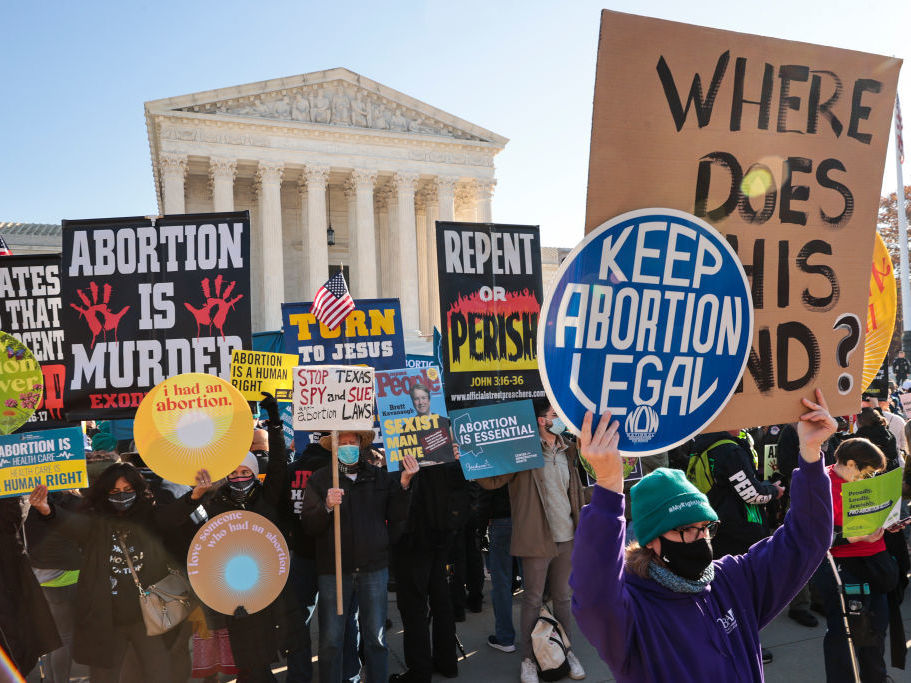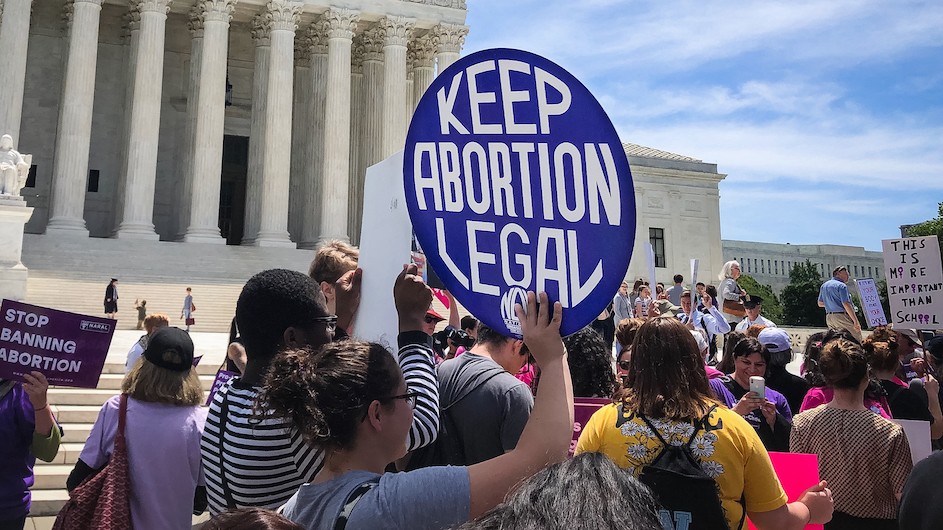Roe v. Wade Overturn: Why Should It Concern You?

The Roe v. Wade overturn is a jolt to the fight for equal rights. When we are supposed to be marching towards a world that fosters inclusivity and equal opportunities, the women worldwide just experienced the US taking a step backwards instead. This is an unfortunate confinement fueling years of control over women’s bodily autonomy.
The History of Roe v. Wade Case
Based on the Roe v. Wade case, it was ruled that the state regulation of abortion is unconstitutional because it violated the right to privacy of women. This ruling by the Supreme Court of US on January 22, 1973, was on the grounds of the Fourteenth Amendment’s liberty guarantee of the due process clause.

The case was filed when a Texas statute made abortion unlawful except if a woman’s life was threatened. The Court dismissed the Texas law by a 7-2 vote, with the majority of the judges arguing that the Ninth and Fourteenth Amendments entailed a right to privacy.
No state had the ability to limit abortions during the first trimester of pregnancy. States were allowed to enact restrictive regulations in order to protect the mother’s health during the second trimester. During the third trimester, the practice could be explicitly prohibited. Any state statute that contradicted this decision was automatically overturned.
Legislations After the Overturn
The 5-4 ruling to overturn this snatches the constitutional shield for abortion from women. After nearly 50 years of the Roe v. Wade case, the overturn on June 25 2022, might result in half the states of the US banning abortion. At least 23 states are anticipated to pass abortion restrictions, and 13 states with “trigger laws” would prohibit all or almost any abortions.
The states that have trigger laws have several caveats to their near-total prohibitions. Although all permit abortions to save a pregnant woman’s life, just five provide exceptions involving rape or incest. Abortion will continue to be legal in 27 states, albeit the legislations in those places are not consistent.

The Ghastly Aftermath
The restriction on access to legalised abortions will create a multitude of difficulties, both long and short term. The plight brings heavier consequences for women with low to middle income. While there is the option to travel and get an abortion, it might not be the most convenient given affordability issues. With the shrinking disposable income, it’s getting difficult for people to meet daily needs. Flying to a different state can easily be considered a luxury for many women.
Immigrant families or families with disabled individuals will face economic hardship if any women in their family are forced to continue unplanned pregnancies to term. Even after a baby is born in such situations, the proper postnatal care and upbringing aren’t guaranteed.
Making abortion illegal won’t necessarily stop abortions; it will only open doors to unsafe termination of pregnancies. Women might look for unauthorised means of getting an abortion. Many practitioners will refrain from performing such procedures due to legal restrictions, which will encourage unethical practices by unskilled individuals in facilities with inadequate resources. This will put the life of the women at risk with chances of life-threatening haemorrhage, infection or permanent organ damage.
Another alarming consequence is the aftermath of traumatic life incidents such as rape or abusive relationships. It is already a challenge for women to combat the mental illness inflicted upon themselves due to such cases. Having to move forward with a pregnancy that they aren’t physically or mentally ready to manage can have devastating effects on the quality of life they will have.

Proper inclusion of women’s bodies in medical studies and experiments is a tale of only thirty years or so. The gender health gap doesn’t just deprive women of having innovative healthcare procedures. There are additional burdens being carried by women, especially when it comes to reproductive health. If you think about it objectively, women having to take birth control, substances which alter their hormone levels and come with a long list of side effects that affect their day-to-day life, on a regular basis, is unfair, to say the least.
When there’s any activity that could result in the potential impregnation of a woman, the avoidance should be the responsibility of every party involved. If medical science can come up with so many types of contraceptives for women in such a short time span, what’s the valid reason for not having viable male birth controls? Although some recent developments have shown progress, in this case, the pace and scale of such studies are rather blurry. The criminalisation of abortion in such circumstances only adds to the misery.
Concluding Remarks
Patriarchal moves such as this overturn, often, if not most of the time, come bearing malicious effects for all of humanity, not just the women. A developed country like the US is setting a dangerous precedent of pushing the boundaries of womanhood when the world is yet to create an environment where women get to define themselves on their own terms. Before chaining women to the over-glorified throne of motherhood, giving them the choice to explore what brings fulfilment in life would definitely be appreciated.
Follow The Interlude and our Instagram and Facebook for more news.





